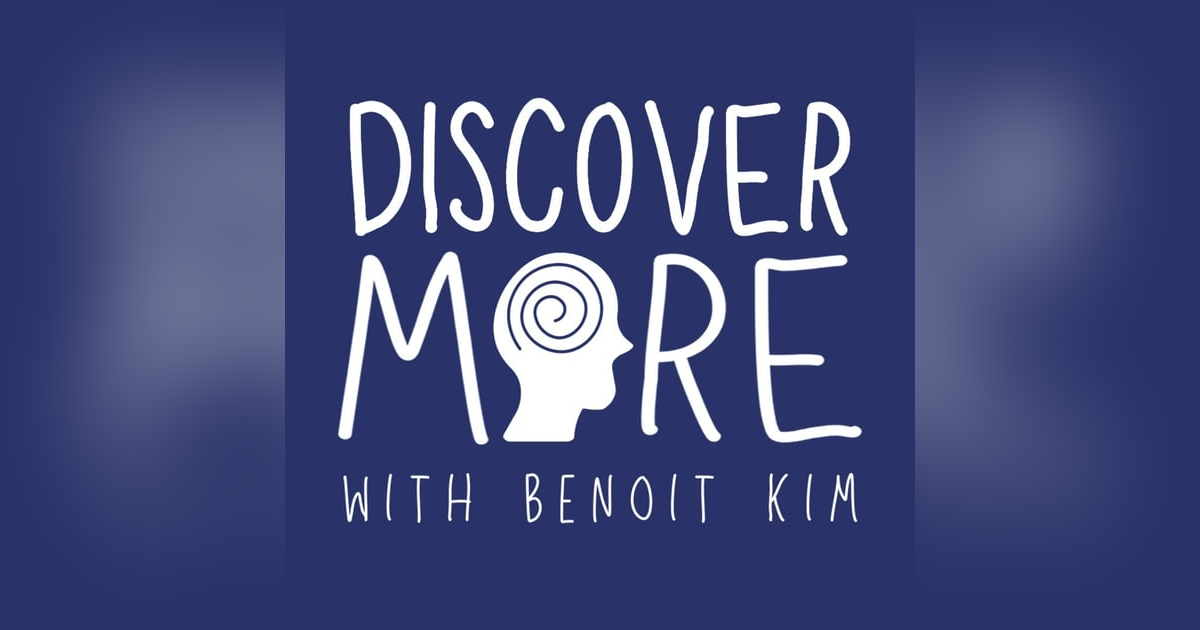#162. NASA Astronaut Reveals How To Control Risks - Jim Wetherbee


What is it like to be an astronaut? What does it take to be an astronaut? How do we control risks in high-stress environments?
Today's guest is one of the most prolific American astronauts who was inducted into the US Astronaut Hall of Fame.
Benoit wanted to be an astronaut or the president of the world. Yes, one of those positions is not real. Now, he explores the space within his clients’ temporal lobes and internal landscapes as a psychotherapist. Close enough, ha!
Jim Wetherbee is a NASA astronaut, former Spaceflight commander, retired US Navy captain, aerospace engineer, and published author.
Jim is a veteran of 6 Space Shuttle missions and is the only American to have commanded 5 spaceflight missions in history.
Expect to learn about the art of controlling risk, the life of an astronaut, the role of cognitive biases in high-stress environments, effective mental modeling, the importance of organizational culture, what we can learn from disasters, and much more.
Welcome to Discover More. Let’s get this started!
*
Rate The Podcast: HERE
Show Notes
Visit Jim's Website
Get Jim's book: HERE
*
Subscribe to YouTube
Discover More Website
Come say hi on Instagram
*
Discover More is a top social sciences podcast for independent thinkers who appreciate the importance of mental health and social sciences. Looking for deep thinking? Let’s get this started.
*
Thank you for Discovering More with us!
A message from the first astronauts
So many of the astronauts, early astronauts, had a revelation or a change in perspective. I don't need to leave the Earth to sense that. I wish everybody could see what the Earth looks like from space. This is a wonderful universe created by God.
Dissecting Mental Health
Discover More is a podcast for independent thinkers who appreciate the importance of mental health and social sciences. Today's guest is Jim Weatherby, a NASA astronaut, former spaceflight commander, aerospace engineer, and a published author. Expect to learn about the arts of controlling risk, the life of an astronaut, and effective mental modeling.
Controlling Risk and Managing Risk
Jim Benoit is the first astronaut on the show. What is the difference between controlling risk and managing risk? The techniques that operators use to control risk are much different than what the organization does to manage risk.
The Perfect Recipe for Confidence and Humility
Benoit: One of the most important techniques, I call it balance confidence with humility. If you don't have confidence, you can't climb on a rocket and you'll make mistakes, he says. Benoit: The perfect recipe is supreme confidence plus humility.
Cognitive Bias in Decision Making
What is the role of cognitive biases in our decision making, especially in these high stress and high stake environments? Critically important. The problem of over analysis or over analyzing is quite more and more relevant today with the rise of misinformation. How do you verify that all your decision points are grounded based on your expertise and feedback?
Do You Have Any Mental Modeling?
Do you have any sort of mental modeling? I've been into a lot of thought experiments and mental modeling. Mental modeling, just simply put, you create scenarios based on information at hand. It's almost like trying to do what AI does without the AI us.
How Do Astronauts Make the Right Decisions?
For five years I was the Director of Flight Crew Operations at NASA. I had to make some pretty important decisions regarding crew members and crew assignments. When I went to sleep and woke up the next morning, somehow, automatically that percolated around, and then I knew it was the right answer.
Jim Briscoe on Conditioning the Astronauts
In your talk at Notre Dame University, you talked about how in your 20 years of NASA career, you flew for a total of two months and spent 19 years and 10 months on the ground. This speaks to the importance of setting the right conditions for the optimal outcome.
The Secret to Applying for Astronauts
Jim Downey: What makes a good candidate? He says teamwork. Wanting to support other people in the mission and recognizing that the mission is far greater than any of us individually. Downey says we as a society are becoming more individual driven and individualistic.
In the Elevator With Jim Webb
Jim Carville: Is there a particular or memorable training experience that really stands out? He says we thrive the best when we're dealing with 10 to 15% more challenging problems. Companies should give progressively more challenging experiences to develop leaders for the future, he says.
The Validation of Your Mentors
Jim Bell: People underestimate the power of validation. A lot of young men lack role models, he says. Bell: I had great parents. And I've had mentors throughout my career that have validated the things I was doing.
What separates a great leader from a horrible one?
Jim Bell: What separates a great leader from a horrible one? Bell: Three Cs: intense commitment to the mission, competence and caring about the people. He says good leaders need to show vulnerability. Bell: If I'm a follower, I will follow a leader who's humble.
Control Your Risk
Jim: Why should people really care about the topic of controlling risk? He says the world is getting a little bit more dangerous. The biggest risk many people face is driving a car. Jim: If you really want to prevent all accidents in a car, avoid all distractions.
High levels of distraction on the road
Distractions is something that's really, really detrimental. When you're driving, you're thinking about something else. Do you have any personal practices, any thoughts to really control the distractions so you can be optimal at what you're focusing?
Distracting Your Brain
The way to learn something is knowledge, skill and attitudes of the ksa. Understand how the brain works, the subconscious, the conscious. Know that your conscious mind is doing one thing at a time. Avoid distractions by knowing what is the thing that you're really trying to accomplish.
In the Elevator With a Navy Captain
Retired Navy captain says landing an aircraft carrier is one of the most dangerous jobs in the world. He says it's the peak of controlling your mental processes. "I realized a little bit too late that supreme confidence can be deadly," he says.
What Makes Landing an Airplane So Hard?
What are the actual mechanical intricacies that make landing an aircraft supremely difficult for the navigator and the aviator alike? I really do believe that most things in life are mental. The biggest challenge is the being ready for an emergency.
Looking at the universe through the Webb telescope
A lot of people respond to the visual from the Webb telescope and truly inspiring photos. What I'm waiting for is the analysis that comes later when the scientists and physicists write the papers and they change our understanding of the universe. This is just a glorious universe and it's a huge privilege to be on the planet.
Jim Bridenbaugh on Columbia
Jim Bell: What did you learn about the importance of organizational culture from the Columbia accident? Bell: If you're a good leader and you want to nurture a great culture, it requires constant effort. Bell: Culture is comprised of individual and culture is relationship.
"Setting Boundaries for Your Marriage"
From 0 to 2, the critical stage for a lot of like kids and infants. So it's hard to set the boundaries. You can't really punish them too much because they're just exploring. Good luck in your marriage.
Six Adverse Characteristics of an Organizational Culture
From your book, Jim, what are the 10 adverse characteristics in organization before disaster? By far the number one and five of them are on the technical side. A single poor quality activity can result in disaster. So you really have to attend to the quality of activities.
What is Accountability in the Oil and Gas Industry?
The concept of accountability is widely misinterpreted in the oil and gas industry. CEOs are accountable to the board, but only if the board is coming and asking questions. This accountability will help to prevent accidents.
Neurology: Narrative Fallacy
There's a concept in psychology called narrative fallacy. It's based colloquially hindsight 20 20. When humans recall past events, since memory recall is not. You're not recalling a stored memory, you're reconstructing it. That's how memory works and reconstructions implies there is room for error.
Accident Investigation: Why Did They Think They Were Doing the Right
Sidney Decker says the accident team asks the wrong question. A better accident investigation occurs when you ask the question why did they think what they did was the right thing to do? If you can answer that question now, you can change the conditions in the future.
3 Types of Conditions That Can Lead to an Accident
When the organization fails to conduct the assurance process properly, it can lead to accidents. What the decision makers need is a process of assurance. It means a prediction of future performance of a contractor or subcontractor. If all organizations had a good assurance process, we'd be far better off as a society.
Black Box Thinking in Healthcare
Black box thinking similar as like a Sydney Deck that it's similar books ethos it talks about in healthcare before they improve the organizational culture. Since healthcare is very hierarchical. Whatever the attending physician says goes. But like prevention is always better than reaction. Period.
Jim Hadley on Diversity of Thoughts
The lack of diversity of thoughts and the rapid rise of echo chamber and biases has nothing to do with intelligence. Studies shows that intelligence actually correlates with like echo chamber or just I guess, dogma or stubbornness.
NASA's Diversity of Thought
Jim Bell: Why is diversity of thoughts such an underrated topic? Bell: It's comfortable being with someone who thinks like you do and agrees with you do. Bell: If you have diversity of thinking, you're going to achieve a better societal answer.
A Taste of Science With Benoit
Benoit: This was an amazing, amazing conversation. I hope it helps and is beneficial to your listeners. I assume it will be because your questions were great and I love the conversation. Thank you.
Jim Carbone on His Book
Where can people find your book? You can probably order it just about anywhere. If you get it from your website, it comes with autograph guaranteed. Right now I think it's disabled. I need to order more and get the website going.
One Friend for the Next Week
I want to ask you to share this episode with one friend. One Friend only is free for you, but very helpful for the podcast's growth. And I encourage you to choose love over fear and curiosity over judgment in the next week's train of Discover More.





